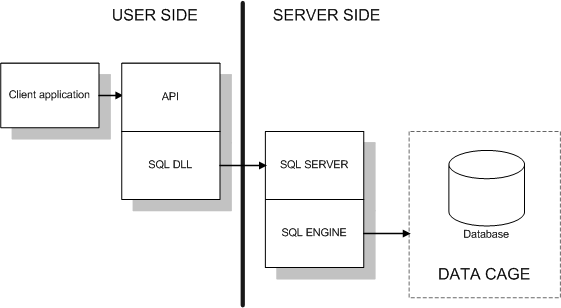Symbian SQL Overview
This document introduces you to the Symbian platform implementation of the Structured Query Language(SQL).
Purpose
SQL is: the syntax for creating, modifying and deleting databases and the data they contain; an engine or server that understands that syntax; the commands and operations that allow the SQL engine to process the syntatical elements. Developers who know one variant of SQL can easily work in another.
Required background
Relational databases, the SQL query language, database programming fundamentals.
Architectural relationships
The SQL component is a free standing component that can be accessed by any application and from anywhere in Symbian platform.
It is has a client-server architecture. Applications interface with the client API. The server side is an executable running in its own process and is not directly accessible to client applications. It can only be reached via the client-side interface.
API summary
The SQL component client consists of three APIs which are used to access, query and secure a database.
SQL APIs
Typical uses
Relational databases and the SQL query language are fundamentals of application development with numerous uses.
SQL Users
SQL tasks
The SQL component is used to:
Creating and deleting a relational database
The SQL component is used to create and delete relational databases. They may be secure or insecure.
Accessing a relational database
Use the SQL component to open and close databases and to attach a secondary database to a primary one.
Querying and modifying a relational database
Use the SQL component to query a database using SQL. Queries can read, write, modify and delete data in a database.
